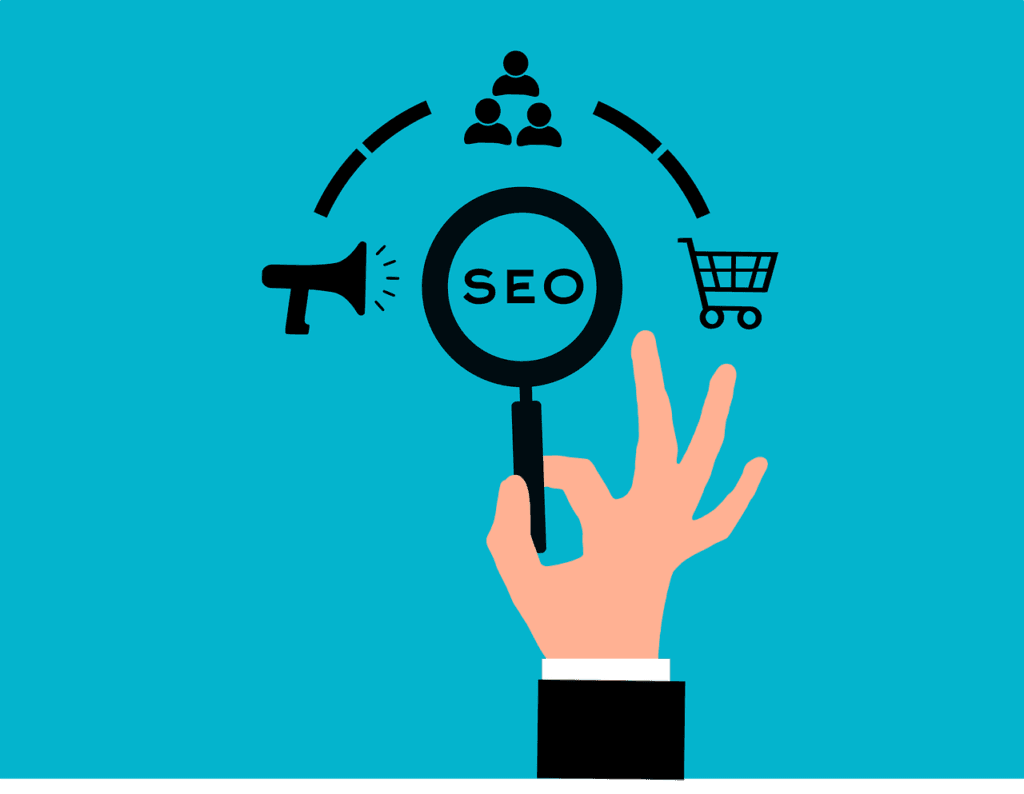Summer is one of the best seasons for real estate. The warm weather, longer days, and school holidays make it a prime time for buyers and sellers to move. To capitalize on this busy season, you need innovative and effective marketing strategies that stand out. In this article, we’ll explore hot marketing ideas for real estate in summer that will help you attract more clients, close more deals, and make this summer your best yet.
Leveraging Seasonal Appeal
Promote Summer Lifestyle Benefits
Highlighting the lifestyle benefits of a property during summer can attract more buyers. Emphasize how the property enhances summer living by focusing on features like proximity to beaches, parks, or hiking trails. Use marketing materials to paint a picture of the perfect summer day spent in and around the home.
For instance, describe how easy it is to take a short walk to a nearby park for a picnic or how the spacious backyard is ideal for summer barbecues and family gatherings. By showcasing the lifestyle that comes with the property, you help buyers envision themselves enjoying their summers there.
Create Seasonal Visual Content
Invest in creating high-quality visual content that captures the essence of summer. Hire a professional photographer to take stunning photos of your listings during the golden hours of sunrise or sunset, when the lighting is perfect. Use drone photography to capture aerial views of the property and its surroundings, highlighting features like a beautifully landscaped garden, a nearby lake, or a vibrant neighborhood park.
Create video tours that focus on summer activities and amenities, such as a poolside relaxation area or a nearby farmers’ market. Share this content across your website, social media channels, and email campaigns to engage potential buyers.
Highlight Summer Maintenance Features
Promote the ease of maintaining the property during the summer months. Highlight features such as automatic sprinkler systems, low-maintenance landscaping, and energy-efficient air conditioning units.
Create informative content like blog posts or videos that explain how these features save time and reduce costs for homeowners. Offering tips on maintaining a lush lawn or keeping a home cool can also position you as a helpful resource and build trust with potential buyers.
Host Summer Block Parties
Organize a summer block party in the neighborhood where you have listings. This not only attracts potential buyers but also engages the local community. Arrange for food trucks, live music, and games for children to create a festive atmosphere.
Provide tours of your listings during the event, allowing attendees to see the properties in a fun and relaxed setting. Promote the block party through social media, local event listings, and flyers in the neighborhood. This approach creates a memorable experience and showcases the community’s vibrant and welcoming spirit.
Leverage Seasonal Trends in Decor
Stage your properties with summer-themed decor to create a warm and inviting atmosphere. Use light, airy colors, fresh flowers, and summer-inspired accessories like nautical elements or tropical plants.
Set up outdoor furniture to create cozy seating areas, complete with cushions and throws that reflect the season’s colors. By aligning the interior and exterior decor with the summer season, you enhance the property’s appeal and help buyers visualize enjoying the space during warmer months.
Offer Summer Incentives
Incentives can be a powerful motivator for buyers. Offer summer-specific incentives such as free landscaping services for the first year, a complimentary home warranty, or a gift card to a local home improvement store.
Promote these incentives prominently in your marketing materials, highlighting how they add value and make the property even more attractive. Limited-time offers create a sense of urgency and can encourage potential buyers to make a decision more quickly.
Focus on Outdoor Living Spaces
Outdoor living spaces are a major selling point in the summer. Highlight features like outdoor kitchens, fire pits, pergolas, and well-designed patios. Create content that showcases how these spaces can be used for entertaining guests, relaxing with family, or enjoying quiet evenings.
Provide ideas for how buyers can personalize these spaces to suit their lifestyle. Highlighting the versatility and usability of outdoor living areas can make your listings more appealing to those who love spending time outside.
Utilize Testimonials and Case Studies
Share testimonials from past clients who have enjoyed summer in their new homes. Create case studies that tell the story of how a family used their new backyard for summer activities or how a couple loved the nearby amenities.
Use quotes, photos, and videos to bring these stories to life. Testimonials and case studies provide social proof and help potential buyers see the real-life benefits of purchasing a home through your agency.
Host Virtual Summer Tours
For buyers who are unable to attend in-person viewings, offer virtual summer tours. Use live video streaming to walk through the property, focusing on how it can be enjoyed during the summer months. Highlight features like natural light, air conditioning, and outdoor spaces.
Engage with viewers in real-time, answering their questions and providing additional insights. Virtual tours expand your reach and make your listings accessible to a wider audience.
Engage with Local Influencers
Partner with local influencers to promote your listings and highlight the benefits of buying in the summer. Influencers can create content that showcases the lifestyle and amenities of your properties, reaching their followers who may be interested in purchasing a home.
Collaborate on events, giveaways, or exclusive tours to generate buzz and attract attention. Influencer partnerships can amplify your marketing efforts and bring in potential buyers who trust the influencer’s recommendations.
Utilizing Digital Marketing

Develop a Comprehensive Social Media Strategy
A strong social media presence is crucial for real estate marketing, especially in the summer when potential buyers are more active online. Create a comprehensive social media strategy that includes a mix of content types to engage your audience. Post high-quality photos and videos of your listings, share client testimonials, and provide useful tips for buying or selling homes in the summer.
Use Instagram Stories and Facebook Live to host virtual open houses and Q&A sessions. Engage with your followers by responding to comments and messages promptly. This consistent interaction helps build a loyal online community and keeps your audience informed about your listings.
Leverage Paid Social Media Advertising
Paid social media advertising can significantly enhance your reach and target specific demographics. Use Facebook and Instagram ads to promote your listings, highlight open houses, and advertise special summer promotions. Utilize the advanced targeting options to reach potential buyers based on location, interests, and behaviors.
Create compelling ad copy and use high-quality visuals to capture attention. Monitor the performance of your ads and adjust your strategy as needed to maximize your return on investment. Paid ads can drive traffic to your website and increase inquiries from interested buyers.
Implement Search Engine Marketing (SEM)
Search Engine Marketing (SEM) is an effective way to increase visibility and drive traffic to your listings. Use Google Ads to target keywords that potential buyers are searching for, such as “homes for sale in [your city]” or “summer real estate deals.”
Create ad campaigns that highlight your unique selling points and include clear calls to action. Utilize Google’s geo-targeting features to focus on specific areas where you want to attract buyers. Regularly monitor your campaigns and optimize them based on performance metrics to ensure you are getting the best results.
Enhance Your Email Marketing Campaigns
Email marketing remains a powerful tool for nurturing leads and keeping in touch with past clients. Develop a summer-themed email marketing campaign that includes updates on new listings, tips for buying or selling a home in the summer, and information about upcoming open houses.
Segment your email list to send targeted messages to different groups, such as first-time buyers, luxury home seekers, or sellers. Use personalized subject lines and content to increase open rates and engagement. Include high-quality images and links to virtual tours to make your emails more interactive and appealing.
Utilize Content Marketing
Content marketing is a great way to establish yourself as an expert in the real estate industry and provide value to your audience. Create a blog on your website where you regularly post articles on relevant topics. During the summer, focus on content that highlights the benefits of buying or selling a home during this season.
Topics could include “Top Tips for Staging Your Home in Summer,” “Benefits of Moving During Summer,” or “How to Keep Your Home Cool Without Breaking the Bank.” Promote your blog posts on social media and through your email newsletters to drive traffic to your website and build your brand authority.
Optimize for Mobile
With more people using their smartphones to search for homes, ensuring your website and digital content are mobile-friendly is essential. Optimize your website so it loads quickly and looks great on all devices.
Ensure that your virtual tours, videos, and images are mobile-optimized and provide a seamless viewing experience. Mobile optimization improves user experience, which can lead to higher engagement and conversion rates. Test your website regularly to identify and fix any issues that could hinder the mobile experience.
Create Interactive and Engaging Content
Interactive content can significantly increase engagement and interest in your listings. Create virtual tours and 360-degree videos that allow potential buyers to explore your properties from the comfort of their homes. Use augmented reality (AR) tools to let users visualize furniture placement or home improvements.
Develop interactive infographics that provide useful information about the real estate market, neighborhood amenities, or the home buying process. Interactive content not only captures attention but also provides a unique and memorable experience for potential buyers.
Utilize Data Analytics
Data analytics is critical for understanding the effectiveness of your digital marketing efforts. Use tools like Google Analytics, social media insights, and email marketing analytics to track key metrics such as website traffic, engagement rates, and conversion rates.
Analyze this data to identify trends, understand what types of content resonate with your audience, and adjust your strategies accordingly. Regularly reviewing and interpreting data helps you make informed decisions and optimize your marketing efforts for better results.
Leverage Video Marketing
Video marketing is a powerful way to showcase your listings and connect with potential buyers. Create high-quality video tours of your properties, highlighting the features that make them perfect for summer living. Use videos to tell stories about the properties, the neighborhood, and the lifestyle buyers can expect.
Share these videos on your website, social media channels, and YouTube. Live video can also be a great way to engage with your audience in real time. Host live Q&A sessions, virtual open houses, or behind-the-scenes tours to give potential buyers an inside look at your listings and build a personal connection.
Implement Retargeting Campaigns
Retargeting campaigns can help you stay top of mind with potential buyers who have shown interest in your listings but have not yet taken action. Use retargeting ads on social media and Google to re-engage users who have visited your website or interacted with your content.
Create personalized ads that remind them of the properties they viewed and encourage them to come back and take another look. Retargeting keeps your listings in front of potential buyers and increases the chances of converting them into clients.
Community Engagement
Collaborate with Local Influencers
Engaging local influencers can significantly boost your community presence. Identify influencers who have a strong following in your area and share an interest in real estate, home decor, or local events. Collaborate with them to promote your listings and events.
For example, you could invite an influencer to tour a property and share their experience on social media. Influencers can also co-host events with you, such as open houses or community gatherings, to attract more attendees. Their endorsement can lend credibility to your business and expand your reach within the community.
Create Local Content
Develop content that focuses on the local community and highlights its unique features. Write blog posts or create videos showcasing local amenities, such as parks, restaurants, schools, and cultural attractions.
Share stories about local events, neighborhood history, and interviews with residents. Highlighting the benefits of living in the community helps potential buyers feel more connected to the area. This approach not only promotes your listings but also positions you as a knowledgeable and invested member of the community.
Engage in Volunteer Work
Participating in volunteer work and community service projects can enhance your reputation and build goodwill. Choose causes that resonate with you and your target audience, such as environmental clean-ups, food drives, or supporting local shelters.
Promote your involvement on social media and your website to show your commitment to the community. Volunteer work allows you to meet new people, build relationships, and demonstrate that your business cares about making a positive impact locally.

Host Educational Workshops
Offer free educational workshops that provide value to the community and showcase your expertise. Topics could include first-time home buying tips, understanding the mortgage process, or home staging techniques.
Partner with local experts, such as mortgage brokers or interior designers, to provide comprehensive and engaging sessions. Promote these workshops through local community boards, social media, and email newsletters. Educational workshops not only attract potential clients but also position you as a trusted resource in the real estate market.
Launch a Community Newsletter
Create a community-focused newsletter that keeps residents informed about local events, real estate market updates, and tips for homeowners. Include sections that highlight local businesses, feature resident spotlights, and share upcoming community events.
Distribute the newsletter through email and printed copies available at local businesses. A well-curated newsletter helps build a sense of community and keeps your audience engaged with your brand.
Organize Family-Friendly Events
Host family-friendly events that bring the community together and provide opportunities to showcase your listings. Ideas include outdoor movie nights, picnics in the park, or holiday-themed gatherings. Ensure these events are fun and engaging for all ages, with activities such as face painting, games, and local food vendors.
Promote the events through local schools, community centers, and social media. Family-friendly events create positive associations with your brand and attract potential buyers who are looking for a family-oriented community.
Support Local Schools and Sports Teams
Sponsoring local schools and sports teams is a great way to give back to the community and increase your visibility. Provide financial support, equipment, or volunteer your time to help organize events. Display your branding on team uniforms, event banners, and promotional materials.
Attend games and school events to show your support and engage with parents and community members. This involvement builds strong connections and demonstrates your commitment to the community’s well-being.
Engage in Local Online Communities
Participate in local online communities, such as neighborhood Facebook groups, Nextdoor, and local forums. Share useful information, answer questions about real estate, and contribute to discussions. Avoid overtly promoting your services; instead, focus on being a helpful and engaged member of the community.
This approach builds trust and positions you as a go-to resource for real estate information. When community members need real estate services, they’ll remember your helpful contributions and be more likely to reach out to you.
Host Charity Fundraisers
Organize charity fundraisers to support local causes and engage the community. Host events like charity auctions, fun runs, or benefit dinners, with proceeds going to a local nonprofit organization. Partner with local businesses to provide sponsorships and raffle prizes.
Promote the fundraiser through social media, local media, and community boards. Charity fundraisers not only raise money for important causes but also showcase your commitment to giving back, enhancing your brand’s reputation.
Create Community Art Projects
Initiate community art projects that beautify the neighborhood and foster a sense of community pride. Organize mural painting days, community gardens, or art installations that involve local artists and residents.
Promote these projects through local media and social media channels. These initiatives enhance the local environment, bring people together, and create lasting positive impressions of your brand within the community.
Personalized Marketing
Tailor Your Messaging
Personalized marketing starts with understanding your audience and tailoring your messaging to meet their specific needs and interests. Start by segmenting your audience based on factors such as demographics, buying behavior, and previous interactions with your brand. Create targeted messages that address the unique concerns and aspirations of each segment.
For example, for young families, highlight nearby schools, parks, and family-friendly activities. For retirees, focus on the peacefulness of the neighborhood and the proximity to healthcare facilities and leisure activities. Crafting messages that resonate with different buyer personas ensures that your marketing efforts are more effective and engaging.
Utilize CRM Systems
A robust Customer Relationship Management (CRM) system is essential for managing and personalizing your marketing efforts. Use your CRM to track customer interactions, preferences, and behavior. This data allows you to send personalized communications that are timely and relevant. For instance, if a potential buyer has shown interest in properties with swimming pools, send them listings that match this criterion.
Automate follow-up emails and reminders based on their actions, such as attending an open house or downloading a property brochure. Personalizing your communication based on CRM data helps build stronger relationships and increases the likelihood of conversion.
Implement Personalized Video Messages
Video messages can significantly enhance personalization in your marketing efforts. Create personalized video messages for potential buyers, addressing them by name and highlighting properties that match their preferences. Use videos to provide virtual tours, showcase property features, and answer specific questions.
Personalized video messages feel more engaging and build a stronger connection with your audience compared to generic emails or messages. Platforms like BombBomb or Loom can help you easily create and send personalized video messages to your leads.
Offer Customized Property Recommendations
Using the data from your CRM, offer customized property recommendations to your clients. Develop an algorithm or use existing tools that analyze their preferences and behavior to suggest properties that are most likely to meet their needs.
Send these recommendations through email, SMS, or within a personalized portal on your website. Providing tailored property suggestions saves your clients time and positions you as a thoughtful and attentive real estate agent who understands their unique requirements.
Create Personalized Landing Pages
Develop personalized landing pages for different segments of your audience. For example, create separate landing pages for first-time homebuyers, luxury home seekers, and investors. Each landing page should have content, images, and calls to action that are specifically designed to appeal to that segment.
Use dynamic content that changes based on the visitor’s previous interactions with your site. Personalized landing pages provide a more relevant and engaging experience, increasing the chances of conversion.
Host Exclusive Events for High-Value Clients
Identify your high-value clients and invite them to exclusive events tailored to their interests. This could be a private showing of a luxury property, a VIP open house with gourmet catering, or a special networking event with other high-end buyers and sellers.
Personalize the invitations and follow up with thank-you notes or exclusive offers. Hosting exclusive events makes your high-value clients feel appreciated and builds a sense of loyalty and trust.
Leverage Predictive Analytics

Predictive analytics can help you anticipate your clients’ needs and behaviors, allowing for even more personalized marketing. Use predictive analytics tools to analyze data from your CRM and other sources to identify patterns and trends.
This can help you predict which properties a client is most likely to be interested in or when they might be ready to make a purchase. Use these insights to send personalized messages and recommendations proactively, positioning yourself as a forward-thinking and highly responsive agent.
Integrate Personalization with Automation
While personalization is crucial, it can be time-consuming. Integrate personalization with marketing automation to streamline your efforts.
Use automated workflows to send personalized emails, follow-ups, and property recommendations based on triggers such as website visits, email opens, or property views. Automation ensures that your personalized messages are timely and consistent, freeing up your time to focus on building relationships and closing deals.
Provide Personalized Content
Content is a key component of personalized marketing. Develop content that speaks directly to the interests and concerns of your different audience segments. Create blog posts, guides, and videos that address specific questions and provide valuable information.
For example, a guide on “Top Tips for First-Time Homebuyers” or a video on “How to Stage Your Home for a Summer Sale.” Use your CRM data to send this content to the relevant segments, ensuring that your audience receives information that is relevant and helpful to them.
Personalized Follow-Ups
After an initial interaction, follow up with personalized messages that reflect the specifics of your conversation. If a potential buyer expressed interest in a particular neighborhood or type of property, send them additional information and updates related to those preferences.
Include personalized touches in your follow-ups, such as mentioning specific details they shared or referencing your previous conversation. Personalized follow-ups show that you listen and care about their needs, fostering trust and increasing the likelihood of continued engagement.
Conclusion
Read Next:





















Comments are closed.